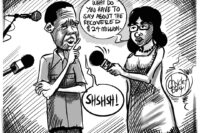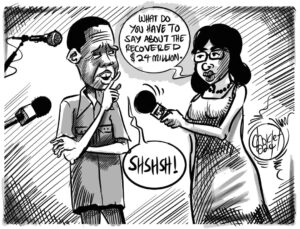THE Energy Regulation Board (ERB) has ruled out any immediate hike in fuel prices despite the kwacha’s continued depreciation against major currency convertibles, saying the latest oil consignment is yet to be received to determine any price changes.
The kwacha plummeted to a record low of K20 per dollar last week, while Brent Crude oil prices have stabilised at an average US $40 per barrel on the international market.
Fuel pump prices were last adjusted last December, which saw petrol prices hiked to an unprecedented to K17.62 per litre from K15.98 when the kwacha was at K14 per dollar and crude oil prices peaked at US $70 per barrel.
Commenting on whether the kwacha’s sustained depreciation since last month would force the ERB to hike pump prices for the second time in 10 months, ERB executive director Langiwe Lungu announced that the regulator would only determine whether a fuel price adjustment was necessary once it received the next cargo shipment.
“I think for us, we only price fuel once we have received it. We use the Cost Plus model. So, what happens on the international markets, on the Zambian market, does not immediately affect the price of fuel. What needs to happen, first, is that the cargo is received, we also have refined products that have come in by road or rail and then we get the weighted average of those products. That is the only time that we will know (what) the price is. Then, as the ERB, we are not the importers of the fuel, so we will not know the price at which it has landed until we get the necessary documentation from the Ministry (of Energy). So, only when we get the necessary documentation to conduct our assessment can we review the price, then we will be able to advise whether we have had a ‘cancelling effect,’ meaning the price remains the same; also, if it hasn’t exceeded the 2.5 per cent trigger ban because we only change upwards or downwards if it exceeds the 2.5 per cent trigger ban,” explained Lungu in an interview in Lusaka.
“If the conditions are favourable, we would reduce the price; if the conditions are not favourable, we will then review the price. So, we are never able to say until we get the necessary documentation to run it through our pricing model and see what the factors have led to. There has been a delay, remember, that Indeni (Petroleum Refinery in Ndola) was shut down for a while so we are just waiting…as soon as we get that documentation, we do get alerts when the ship has come in. Once the ship has docked and once the documentation is ready is then when we get alerted and begin the assessment.”












